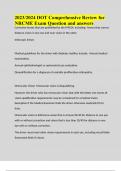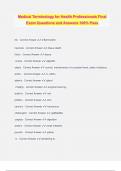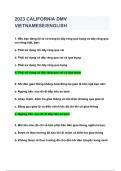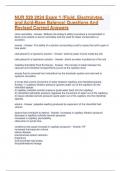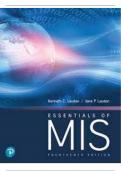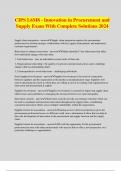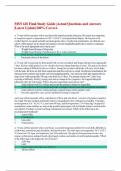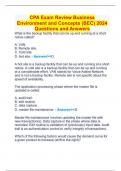Exam (elaborations)
DOT Comprehensive Review for NRCME Exam Question and answers 100% GUARANTEED PASS
- Course
- NRCME DOT
- Institution
- Chamberlain College Of Nursing
2023/2024 DOT Comprehensive Review for NRCME Exam Question and answers Corrective lenses that are prohibited by the FMCSA, including: -lenses that correct distance vision in one eye and near vision in the other. telescopic lenses DOT Comprehensive Review for NRCME Exam Question and answers 10...
[Show more]
